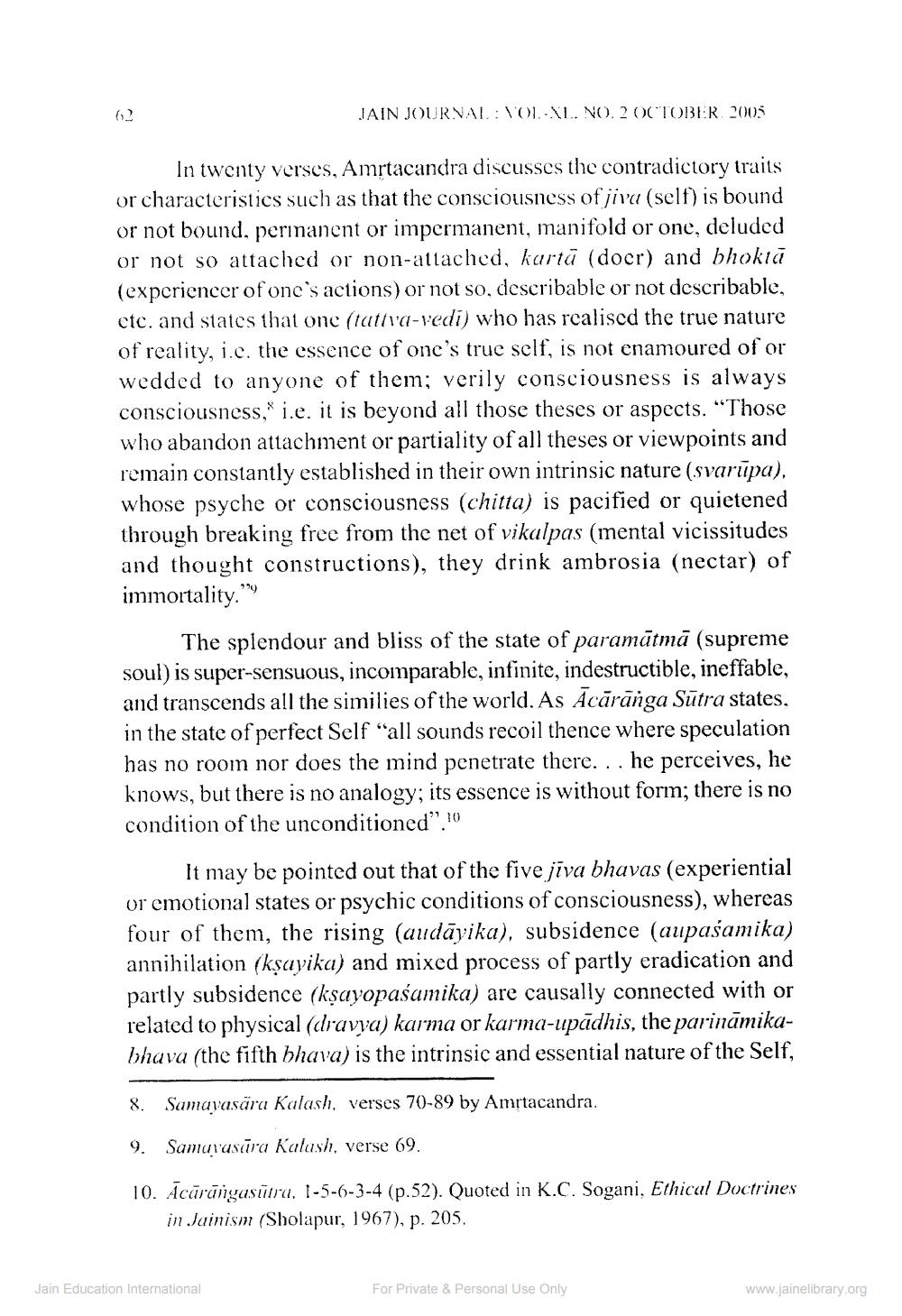Book Title: Jain Journal 2005 10 Author(s): Jain Bhawan Publication Publisher: Jain Bhawan Publication View full book textPage 9
________________ JAIN JOURNAL: VOL-XL. NO. 2 OCTOBER 2005 In twenty verses, Amrtacandra discusses the contradictory traits or characteristics such as that the consciousness of jivu (self) is bound or not bound, perinanent or impermanent, manifold or one, deluded or not so attached or non-attached, kartā (docr) and bhoktā (experiencer of one's actions) or not so, describable or not describable, etc. and states that onc (tatta-vedi) who has realised the true nature of reality, i.e. the essence of one's true self, is not enamoured of or wedded to anyone of them; verily consciousness is always consciousness, i.e. it is beyond all those theses or aspects. “Those who abandon attachment or partiality of all theses or viewpoints and remain constantly established in their own intrinsic nature (svarupa), whose psyche or consciousness (chitta) is pacified or quietened through breaking free from the net of vikalpas (mental vicissitudes and thought constructions), they drink ambrosia (nectar) of immortality." The splendour and bliss of the state of paramātmā (supreme soul) is super-sensuous, incomparable, infinite, indestructible, ineffable, and transcends all the similies of the world. As Ācārānga Sūtra states, in the state of perfect Self “all sounds recoil thence where speculation has no room nor does the mind penetrate there. . . he perceives, he knows, but there is no analogy; its essence is without form; there is no condition of the unconditioned”.!" It may be pointed out that of the five jiva bhavas (experiential or emotional states or psychic conditions of consciousness), whereas four of them, the rising (audāyika), subsidence (aupašamika) annihilation (kşayika) and mixed process of partly eradication and partly subsidence (kşayopaśamika) are causally connected with or related to physical (dravva) karma or karma-upādhis, the parināmikabhava (the fifth bhava) is the intrinsic and essential nature of the Self, 8. Samavasara Kalash, verses 70-89 by Amrtacandra. 9. Samarasura Kalash, verse 69. 10. Ācārāngasūtru. 1-5-6-3-4 (p.52). Quoted in K.C. Sogani, Ethical Doctrines in Jainism (Sholapur, 1967), p. 205. Jain Education International For Private & Personal Use Only www.jainelibrary.orgPage Navigation
1 ... 7 8 9 10 11 12 13 14 15 16 17 18 19 20 21 22 23 24 25 26 27 28 29 30 31 32 33 34 35 36 37 38 39 40 41 42 43 44 45 46 47 48 49 50 51 52 53 54 55 56 57 58
